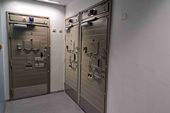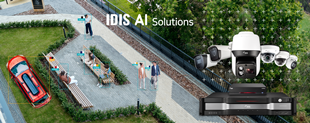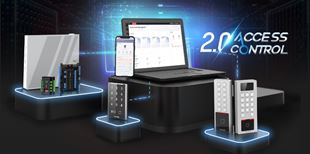The pressure to meet global climate targets has never been greater and with buildings accounting for 40% of global greenhouse gas emissions, there is an urgent need to advance sustainable building technology to help enterprises meet net zero goals while accommodating for continued growth. Smart buildings offer a harmonised environment that prioritises both well-being and sustainability, using technology to adapt and unlock potential, support productivity and drive peak performance of building occupants.
"Never has it been more important for organisations to consider advanced and efficient ways to reduce their carbon footprint – especially in the buildings industry, which is the single largest source of our planet's greenhouse gas emissions," said Johnson Controls Chief Technology Officer Vijay Sankaran. "The smart building of the future offers new and more effective ways to help companies meet critical climate goals, reduce costs, enhance daily operations to achieve business growth and improve personalised experiences. When a building 'comes alive' with smart technology, all stakeholders benefit from the integrated approach that ultimately creates a healthier, safer and more productive environment."
Converging factors
Several factors are converging to accelerate the development and adoption of advanced building systems technology. As building owners work to respond to challenges such as rising energy costs and changes in occupancy patterns, among others, sophisticated IoT devices and the implementation of data analytics and AI have become more important than ever.
As many of the technical foundations required to turn buildings into smart buildings already exist, organisations should take additional action to prepare for and improve their future building operations. This includes developing a strategy that includes user experience, partnering with IT and cyber security teams, establishing partnerships with external consultants, investing in education and training, and running pilot projects.
Sustainability is about partnerships
This report builds on recently announced survey results from Johnson Controls and Forrester Consulting that show widespread acceptance of sustainability as a business priority and a firm recognition that partners are essential to realizing 2030 sustainability commitments. The survey found building operators believe smart buildings are important in helping organisations accelerate sustainability initiatives and that adding or upgrading building automation and digital technologies to optimize energy use are among the most impactful sustainability investment areas. The survey also found that most leaders seek partners, like Johnson Controls, who can provide a digital platform across sites and use cases, which Johnson Controls provides.
As a one-stop-shop for creating smart buildings, Johnson Controls has developed a three-step process to transform buildings into strategic assets – design, digitalise, deploy. The journey starts with the design and roadmap solutions that achieve efficiency, sustainability, decarbonisation, resiliency and energy transition in accordance with customer goals. Next comes digitalisation to make buildings smarter through solutions like Openblue Enterprise Manager - Net Zero Advisor, connecting infrastructure, distributed generation and the grid so data can be accessed that is critical to making informed decisions to solve for cost and carbon. This is followed by the deployment of solutions through a one-source, turnkey delivery model that leverages efficiency, electrification and renewables solutions. Operations, service and maintenance underpin the Johnson Controls "as-a-service" offerings to maintain peak operating conditions, protect customer's investment and achieve some of the lowest lifecycle costs.
Ecoysystem of connected technologies
The cornerstone of this smart building strategy is Johnson Controls Openblue, an industry-leading ecosystem of connected technologies, digital solutions and services. Openblue reads the live activity of a building and continuously adapts to optimise performance. Combining data from across the building's systems and using advanced digital tools like AI, we can provide insights that save more energy and emissions than possible with isolated systems. Openblue is recognised in the building industry as a powerful enabler of measurable outcomes and Johnson Controls was recently named a leader in energy management software by Verdantix in its Green Quadrant: Energy Management Software report.















